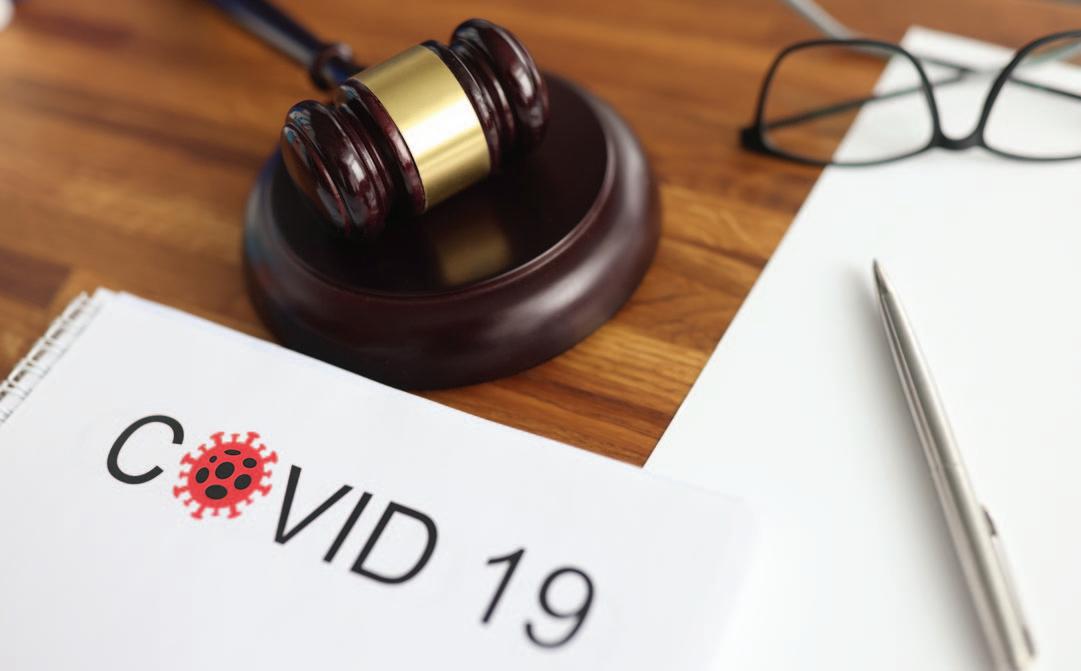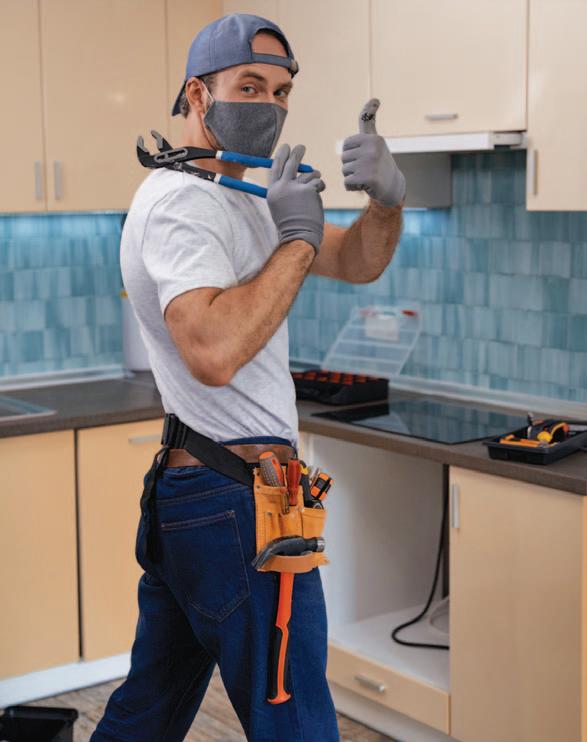
3 minute read
Bill 218: COVID-19 Liability and Condominiums
Christopher L. Dilts SimpsonWigle LAW LLP
The news a condominium corporation never wants to hear: There is a COVID-19 outbreak throughout the condominium complex. What happens if residents or visitors that contracted COVID-19 decide to sue? This question has been asked by many since the onset of the pandemic over one year ago. In this article, we provide the answer to that question and assess the impacts of Bill 218 on condominium corporations.
Advertisement
Thanks to Bill 218, lengthily titled, “An Act to enact the Supporting Ontario’s Recovery Act, 2020 respecting certain proceedings relating to the coronavirus (COVID-19), to amend the Municipal Elections Act, 1996 and to revoke a regulation”, we are now able to answer that question with some degree of certainty.
Effective March 17, 2020, Bill 218 prevents residents and visitors from taking legal action against a condominium corporation (or anyone else) if they contract COVID-19 while on condominium premises, provided that the condominium was complying with, or at-
continued…

tempting in good faith to comply with, the applicable COVID-19 rules, law, and public health guidelines.
If the condominium corporation is following the rules (including federal, provincial, and municipal laws, and public guidelines), and is not otherwise being “grossly negligent”, the condominium corporation and its employees will be immune from liability stemming from a resident or visitor contracting COVID-19.
There are some notable exceptions to the general rule outlined above: 1. It does not apply to any person that contracted COVID-19 prior to March 17, 2020; 2. It does not apply if the area where
COVID-19 was contracted was supposed to be closed (i.e., a pool); and 3. It does not apply if the person that caught COVID-19 is a worker performing services for the condominium corporation.
The third exception is significant. If a worker (an independent contractor or employee) contracts COVID-19, that worker (or their estate) may be able to sue against the condominium corporation or otherwise make a claim to the Workplace Safety and Insurance Board as appropriate.
There is no sure-fire way to prevent litigation from an injured worker. However, the best defence against any potential claim is to show that the condominium corporation has adopted rules and procedures to minimize the risk of contracting COVID-19.
Key Takeaways
For a condominium corporation to properly take advantage of the protections offered by Bill 218, several common-sense takeaways can be implemented:
1. Ensure that the condominium corporation is complying with the COVID19 rules, laws, and guidelines. If there is any question about whether the condominium corporation is in full compliance, contact Public Health Ontario, or speak to a lawyer; 2. Ensure that all workers use personal protective equipment and are following the applicable COVID-19 rules, laws, and guidelines. The best way to ensure compliance is to implement a written COVID-19 policy that applies to all workers; and 3. Keep yourself informed of any changes to the COVID-19 rules, laws, and guidelines. Things can change quickly, and it is important the condominium corporations keep up.
Provided that the condominium corporation follows the COVID-19 rules and takes reasonable steps to ensure its workers do too, it will avoid (most) liability arising from any COVID-19 outbreak.
Christopher Dilts is an employment and human rights lawyer with SimpsonWigle LAW LLP whose practice includes advising condominium corporations of their rights and obligations towards workers and residents.










